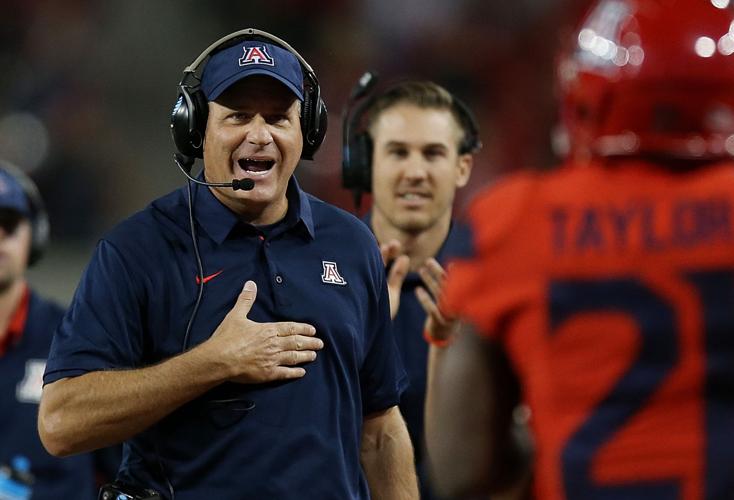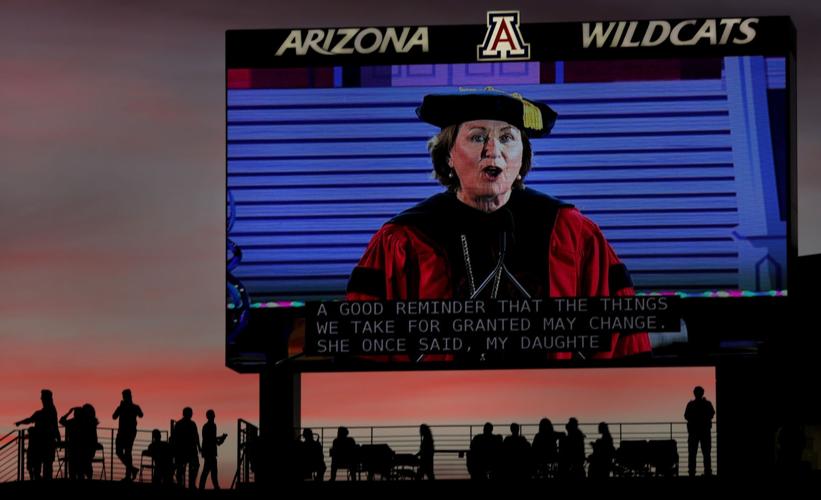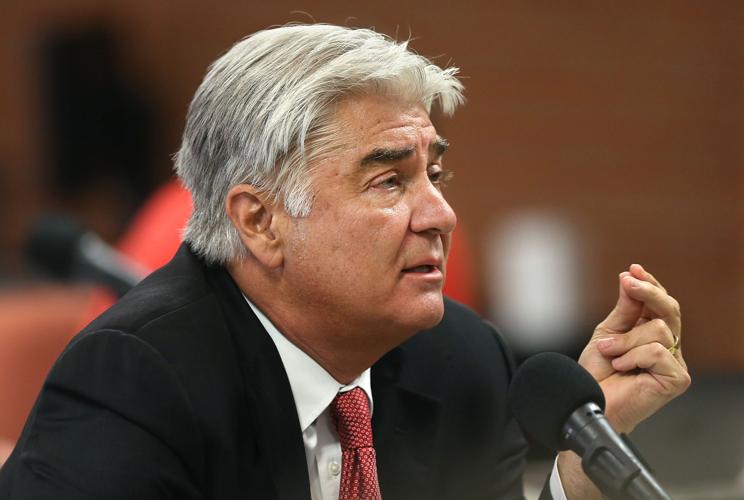If you need a job but think you might fail or misbehave, you should consider applying to the University of УлшжжБВЅ.
That way, if you get caught with your figurative (or real) pants down, youтll likely end up with a golden parachute.
The manufacture of golden parachutes, it seems, has become a specialty for the UA and the stateтs university system.
Consider that former UA football coach Rich Rodriguezтs $6.28 million buyout, announced last week, was just the latest in a string of similar solutions to sticky job situations. Together, they suggest that, once you reach a certain career altitude, whatever you do, the universities will guarantee you a smooth and glittering ride down.
Of course, before RichRod, there was ASUтs football coach, Todd Graham. In November, he was offered $12 million to go away. He worked up in Tempe, yes, but his contract was approved by the same УлшжжБВЅ Board of Regents that approved Rodriguezтs deal and that of the UAтs past president.
People are also reading…
The universities tell us the coaches are being paid out of athletic department money, not state funding or tuition.
Before Graham, of course, there was Ann Weaver Hart. She hasnтt officially served as president of the UA since May 2017, but she is being paid her old base salary as president, $475,000, until June 2018. The regents even awarded her a $25,000 bonus last month, for meeting goals before she left office.
Itтs not just the regents but the university itself that at times seems to reward failure. Dr. Joe тSkipт Garcia, the former vice president of health sciences at the UA, resigned that post in December 2016 under pressure, but he remains a research professor. A condition of Garciaтs departure from the former position: He continues to make the $870,000 he was paid as vice president for two years after leaving the job.
And then there are those accused of felonies. Emmanuel тBookт Richardson, the former UA assistant basketball coach, is charged with taking bribes and various acts of fraud related to recruiting players, but he is still getting paid his $250,000 salary. The UA started the process of firing him, but he appealed, so heтs collecting until his current, one-year deal expires.
J. Lyle Bootman, the former dean of the UAтs pharmacy school, was charged with aggravated assault, sexual assault and sexual abuse in October 2015. The university promptly suspended him with pay and removed him as dean.
Still, Bootman has continued collecting his professorтs salary of $253,000 per year, even after the university asked him to stay away from campus. Prosecutors dropped the criminal case against Bootman in October, but the alleged victim is continuing to pursue a civil case.
Why is it so hard for the universities to just fire somebody, say goodbye and stop paying them?
For the high-flyers, a main reason seems to be that they demand a generous contract if theyтre going to commit to the UA and УлшжжБВЅ. тYou want me?т they say, тThen show it in writing.т
As Faculty Senate President Lynn Nadel told me, тItтs hard for a given institution to say, тWeтre sorry, we donтt play that game.т Especially if youтre an institution trying to move up in the world.т
So the regents and university play the contract game, guaranteeing years of pay unless the new hire can be fired тfor cause.т
тIf you want to get rid of somebody before the contract is over, if you canтt terminate them for cause, then youтre bound to pay them what you promised to pay,т Nadel said. Itтs the whole idea of a contract, a two-way commitment.
And yet, it feels like the regents or the university are reluctant to hold under-performers accountable. Why was it such an agonizing effort to remove Hart for her disappointing tenure as president? Why is Bootman still formally a faculty member? Why is so much money flowing to people for jobs they arenтt doing?
The decision often boils down to whether the decisionmakers think they have formal тcauseт to fire somebody. In Rodriguezтs case, the UA tried to find cause to fire him via an investigation into allegations of wrongdoing. They said they couldnтt prove it, so theyтre paying.
The alternative is the likelihood that the person theyтre firing will sue the university. That has its own costs and risks.
Regents Chair Bill Ridenour has an idea that he hopes will limit these payouts in the future т mitigation clauses. These contractual terms would reduce the universitiesт obligation to make big payouts if the fired employee is able to find a new job.
тIf we, as a board, terminate the president, or the university terminates the coaches, and they go get another job somewhere else, then their payout is eliminated or reduced substantially,т Ridenour said.
That seems like a fair obligation for the university to ask for, that the terminated employee actually see if they can get work and offset what the university would owe them. Of course, the candidate would have to agree to such a term, and in the inflated market for top talent, good applicants have leverage.
But maybe thatтs the kind of candidate we want. Or maybe our universities just need to fire people who deserve it, then let the chips fall. In the worst cases, maybe they wonтt sue, or if they do, weтll at least be paying our lawyers instead of people who failed or misbehaved at their jobs.










































